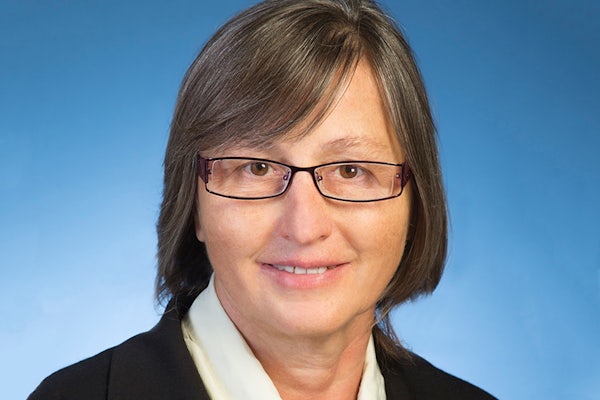Alumna Ilic elected to National Academy of Engineering
Over her 40-plus-year career, Ilic has developed a new way to model complex power systems

Marija Ilic’s first experience in the United States was stepping out of a plane at St. Louis Lambert International Airport in August when the region’s notorious heat and humidity are at their peaks. She arrived in St. Louis from her native Serbia to study systems science & engineering at Washington University in St. Louis. From that oppressive August day in the mid-1970s to today, Ilic’s career has been so prolific and impactful that she was recently elected to the National Academy of Engineering.
Ilic, who earned master’s and doctoral degrees in systems science & mathematics, which is now the Preston M. Green Department of Electrical & Systems Engineering, from WashU Engineering in 1979 and 1980, respectively, was one of 104 new members and 24 international members in the NAE’s 2021 class. Election to the NAE, considered one of the highest honors in engineering, recognizes those who have made outstanding contributions to the field. Ilic was selected for her contributions to electric power system analysis and control. Among her many other accolades awards and honors are the First Presidential Young Investigator Award for Power Systems, as well as being named an IEEE Fellow and an IEEE Distinguished Lecturer. She received an Alumni Achievement Award from the WashU School of Engineering in 2010.
Ilic, now a senior research scientist at Massachusetts Institute of Technology (MIT), has been conducting research in electrical power modeling and control for more than 30 years at several elite universities, including Cornell University, the University of Illinois Urbana-Champaign, MIT and Carnegie Mellon University (CMU), where she started the power systems program in electrical & systems engineering. For five years, she was also the Honorary Chaired Professor for Control of Future Electricity Network Operations at Delft University of Technology in Delft, The Netherlands.
After 15 years at CMU, where she became the first tenured woman faculty member in the Department of Electrical and Computer Engineering, director of the Electric Energy Systems Group and is now professor emerita of electrical & computer engineering and of engineering & public policy, she returned to MIT in 2017, where she had previously worked from 1987-2002, to join the Laboratory for Information & Decision Systems (LIDS), the longest continuously-running lab at MIT.
Over the course of her admirable 40-plus-year career, Ilic has developed a new way to model complex power systems. Her main research area is in large-scale smart grids to implement sustainable, IT-enabled electricity services, modeling future electrical energy systems and designing computer methods and algorithms to simulate large-scale dynamic systems. Not only does she work on the technical side, but the policy and economics sides as well, seeking to transform the electric power grid into efficient, reliable and secure integration of novel energy sources.
As most successful people such as Ilic will attest, reaching the pinnacle of one’s career includes some sacrifices. For the 15 years that she was at CMU, she spent four days a week in Pittsburgh and three in Boston, where her husband, Jeffrey Lang, who is professor of electrical engineering & computer science at MIT, and their children remained.
“I had a little apartment in Pittsburgh, and I worked around the clock teaching and being in meetings for a maximum of four days a week, then worked from home in Boston the rest of the week,” she says. “There was a lot of time balancing priorities.”
At MIT, Ilic still works nearly around the clock teaching, advising master’s and doctoral students and working in Group 47 Energy Systems Group at MIT Lincoln Laboratory, which she says she really enjoys.
“There are so many new questions in this field, I wish I were 20 years younger because there are good opportunities for innovation with impact,” she says. “The data-enabled management and information that enables that process is very important. It’s clear that it is needed.”
She has written several books, including a 900-page book with her doctoral adviser at Washington University, the late John Zaborszky, who was the founding chair of the Department of Systems Science & Mathematics.
“Dr. Z was a giant and taught me how to think systems,” Ilic says. “Usually, you would either do theory or practical engineering. He did both.”
She is now working on a two-volume set on modeling and controls for the changing electric energy industry. She will write the first volume on how to rethink modeling and controls for the industry, and the second volume will be co-edited with her collaborators.
“I really want to finish that before I slow down,” she says.
Ilic said it has been hard to make the case that the field of power systems needs more qualified faculty. Top universities have a limited number of faculty positions.
“I wish that people thought about power systems more. It’s a wonderful opportunity where you can do tech transfer and applications, computing and control,” she says. “These complex systems bring about very difficult questions that cannot be solved by only state-of-the-art solutions, because there are many novel theoretical questions typically not addressed. For example, how would one make plug-and-play complex systems that work well? It’s a beautiful area to work on and is good for society.”



